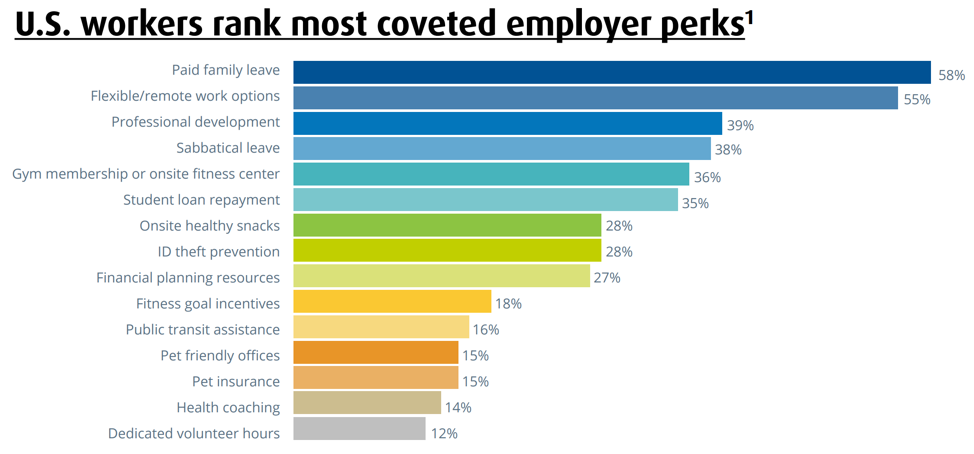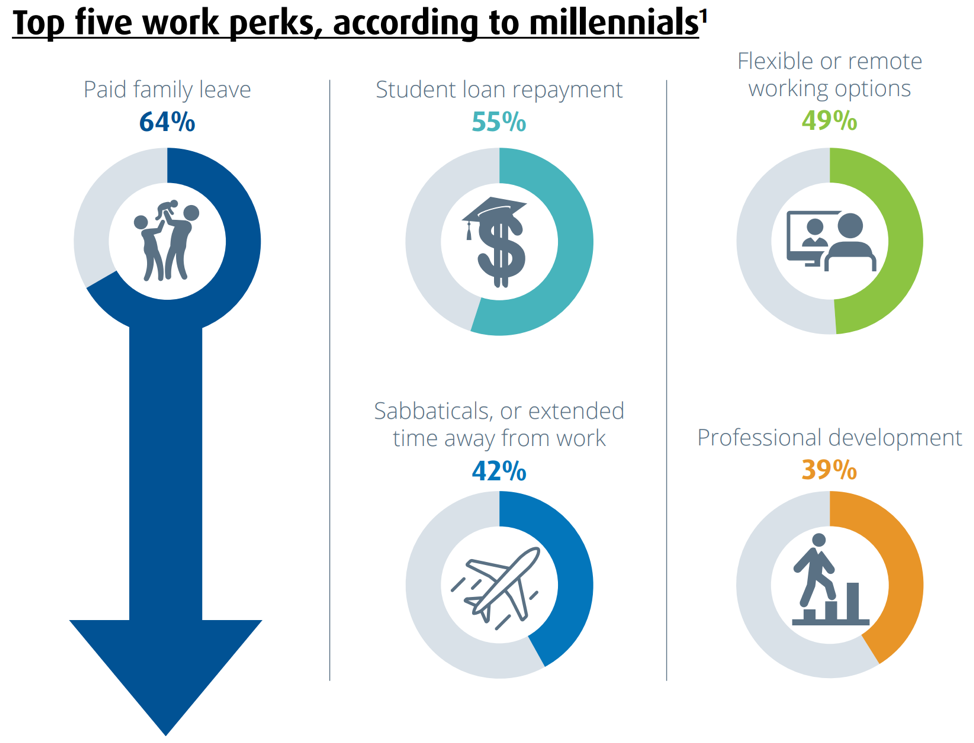A survey of 1,227 working U.S. adults asked respondents to rank their top five popular work perks in order of preference. For the purpose of the study, work perks were defined as non-insurance or retirement benefits. Although the results were not all that surprising, they are worth reflecting on because they provide clear insights on what employees want from a total benefits package. According to the survey, three of the five most-favored perks were paid family leave, flexible/remote work options, and sabbatical leave. These preferences, which transcend generations, emphasize that employees value benefits that give them time and flexibility with work.

Whether it is to de-stress, be a caregiver, or pursue personal/professional development, employees want the opportunity to address what is most important to them, and extra/flexible time allows them to do so. With employers increasingly offering unlimited time off and flexible work schedules, companies that do not provide benefits to address time management will likely suffer from challenges in recruiting and retention.
In addition to time management topping the list, health and wellness benefits ranked highly amongst employees as well. Gym memberships or onsite fitness center, healthy snacks, fitness goal incentives, and health coaching also topped the list. Coupled with time off and flexible work schedules as tools to maintain health, it is clear that personal well-being continues to be an area where employees expect companies to provide assistance. Financial planning resources also made the list, which highlights the broader perspective employees are taking when considering their well-being.
The survey, which looked at all generations in the workforce, had similar results for millennials. Like the general population, millennials prefer time benefits over other perks, with paid family leave, flexible/remote work options, and sabbatical leave ranking in the top four. Unlike the general population, student loan repayment was a higher priority, ranking as the second most popular perk. This is likely due to the number of millennials that entered the workforce with large amounts of student debt and a job market that did not allow them to pay off the loans quickly.

Awareness for time off and flexible work schedules is high amongst employers. Eighty-eight percent of companies think they need to offer paid family leave to be competitive. Despite this awareness and research like the Unum survey, paid family leave varies widely across employers and industries. With a tightening labor market, employees often are making decisions based on workplace perks that they value. Employers that lead the way in addressing the needs of their employees will create a foundation of success through the talent they are able to recruit and retain at their firms.












